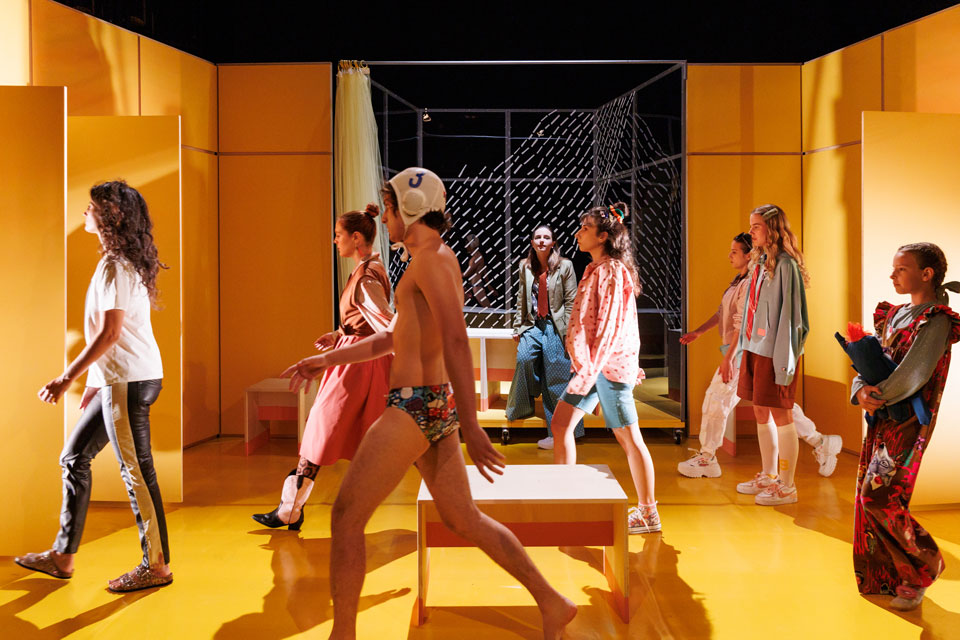Damjan Kecojević, actor, director, and frequent collaborator on stage movement, brings his latest directorial work, In the Ceiling the Stars Are Shining, to open the fourth Novi Sad Theater Festival on May 7. The play, produced by the Little Theater "Duško Radović", explores themes of grief, growing up, and finding hope amid despair.
We spoke to him about the emotional layers of the play, the state of theater for young people in Serbia, and how art can offer truth—and sometimes healing—in uncertain times.
The play centers on a teenage girl, Jenna, dealing with her mother's terminal illness. Can we still see stars shining above us in times like these?
Not only is it possible—it’s necessary. The play is about how life pushes us forward, even in the most painful moments. Social or personal, crises don’t wait. Young people especially can’t pause their development or grief. When protests recently blocked the street near our theater, some of those same young people came to see this play. Even when the topic is difficult, theater can offer a kind of emotional refuge.
You handle painful topics—illness, loss, death—with great sensitivity. How do younger audiences respond?
Surprisingly, it's often less shocking to them than to adults. They face things more directly, more quickly. Our culture avoids confronting death, but the younger generation is beginning to change that. This play helps make space for conversations we often suppress. It's painful, yes—but it’s also full of life and resilience.
How did the novel by Johanna Thydell come to you?
I first heard about it over a decade ago in Sweden while working on a play. The story stayed with me. A year ago, I came across a stage adaptation and read the novel on a bus trip to Bulgaria—I cried the entire way. I could immediately see it on stage and envisioned the entire cast.
You’ve spoken about the lack of theater infrastructure for young audiences in smaller Serbian towns. Why is that?
It’s not just about money—though budgets are constantly being cut. It’s about priorities. There's no consistent cultural policy here, and often there's no interest in young people developing critical thinking. Every city should have a youth theater, but we keep sidelining these initiatives. Still, I'm hopeful. I see a different kind of persistence in today's youth. They want more than just material success.
What are young audiences looking for in theater today—truth, comfort, entertainment?
They’re looking for recognition, something real they can connect with. Theater for them isn’t about escapism. They can find fun elsewhere. They want meaning, resonance, relevance—and that's what we aim to give them.
How do you talk to your own children about the confusing reality we’re living in?
I try—but it’s hard. The world is overwhelming, even for adults. What matters is preserving some core—family, friends, decency. I see that older kids are thinking deeply and forming strong opinions. But there’s a lack of dialogue in society. We don’t need to agree, but we do need to talk. Silence, especially after tragedies, only deepens trauma.
Some criticize the dark tone of youth theater today. What's your response?
We reflect the times. Comedy for the sake of comedy isn’t enough. Repertoires must evolve with the world, or we become irrelevant. We’re accountable—not just to audiences, but to the city and its public. We can’t offer empty content when reality is anything but light.
In the Ceiling the Stars Are Shining is more than a play about loss. It’s about carrying on—truthfully, openly, and with compassion. And, as Kecojević insists, sometimes in order to move forward, we need to look up.
Snežana Miletić
Photo by: Jelena Janković




